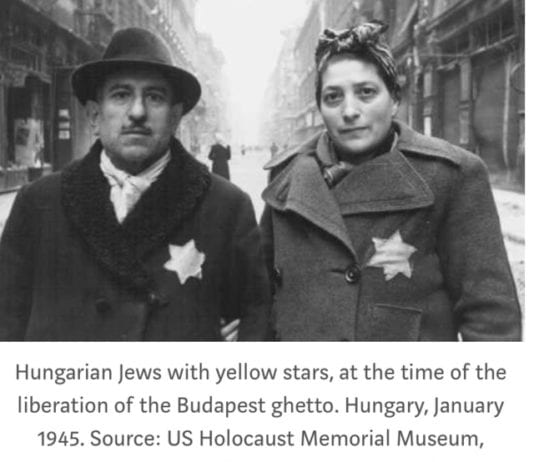Hungary’s Jewish community has commemorated the 75th anniversary of the liberation of the Jewish ghetto in Budapest, the capital, amid concerns that history will repeat itself.
Tens of thousands of Jewish men, women, and children had lived in fear in the ghetto. Hungarian fascists and German Nazis murdered many during World War II.
Some, “70,000 persecuted Jews lived among the walls of the ghetto,” recalled Yakov Hadas-Handelsman, Israel’s ambassador to Hungary. “More than 20,000 Jews were hiding in terror across the city.”
He said that for “most of these people, the arrival of the Red Army” of the Soviet Union “and the liberation of the ghetto meant escaping death.”
The ceremony on Sunday, 19th January, was held in and outside Budapest’s Dohány Street Synagogue, Europe’s largest synagogue. The emotionally-charged service also included prayers reverberating throughout the area. It came amid fresh concerns about anti-Semitism here.
“The tragedy of the Hungarian Jews did not begin when the first trains departed from Hungary for the Auschwitz death camp,” in German-occupied Poland said.
Róbert Frölich, the synagogue’s Chief Rabbi. He suggested that an atmosphere of hatred led to the mass killings of Jews in the Holocaust, or Shoah.
The persecution of Jews, he recalled, began with words, ideologies, writings, thoughts, and emotions. That marked the path towards establishing the Jewish ghetto from where many were deported to death camps, the rabbi noted.
He criticised those who claim that then-Governor Miklós Horthy and other governing officials did not know or agreed with the establishment of the ghetto. “Those in Buda Castle were aware and approved of it and allowed it to happen,” he said.
Frölich noted that “many” people say: “Don’t you Jews exaggerate this remembering the Holocaust?” But, he countered: “Is it possible to exaggerate remembering the fact that they tried to exterminate our fathers and grandfathers? That they wanted to take away our right to be born and that they erased 600,000 Jews just like that from the society of this country?”
Read the article by Stefan J Bos in Sight Magazine.

